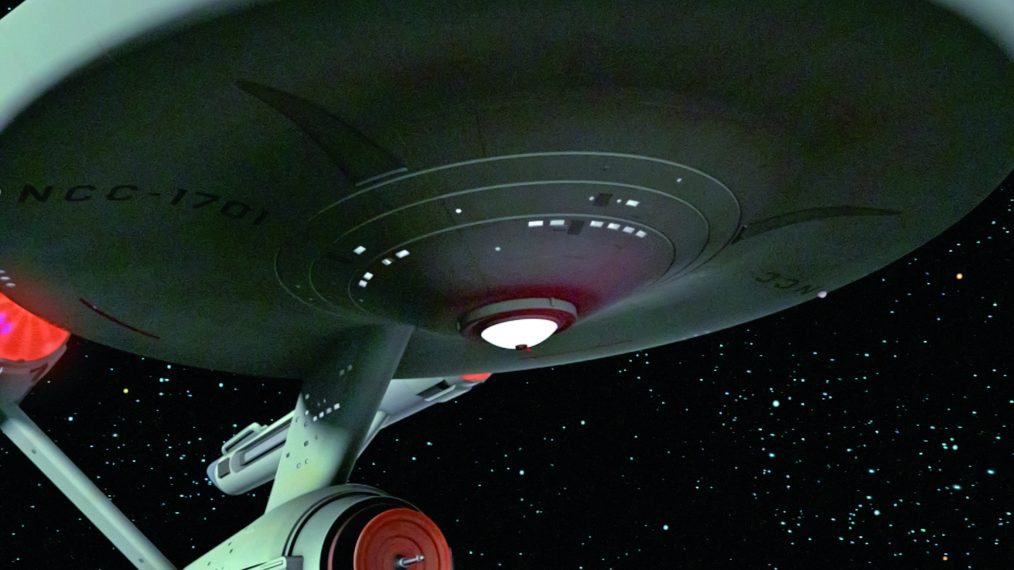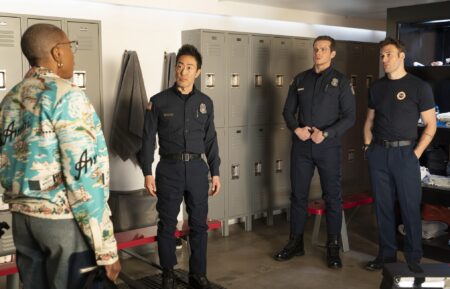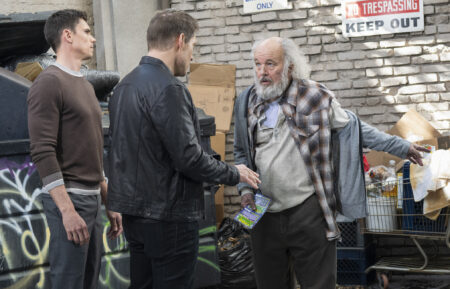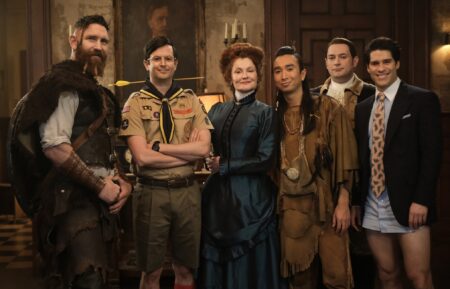How ‘Star Trek’ Has Been Able to Live Long and Prosper For 50 Years

“One day, there’ll be a star named for Gene Roddenberry,” I wrote in an appreciation of Star Trek’s legendary creator upon his death in October 1991. (Turns out a crater on Mars and an asteroid do bear his name.) This star, I suggested, “should shine bright, radiate hope for the future of the human condition and be able to evolve in a way that will remain relevant for generations to come.”
So it has turned out for his greatest contribution to popular culture, which continues to enthrall and inspire, with no end in sight.
RELATED: As Star Trek Turns 50, Gene Roddenberry’s Vision Endures
In one of those cosmic coincidences that sometimes happen in this business, earlier on the day of Roddenberry’s passing I visited the Los Angeles home of Leonard Nimoy, forever to be remembered as the iconic Vulcan Mr. Spock. During our conversation, which was prompted by Spock’s upcoming appearance on Star Trek: The Next Generation, Nimoy praised Roddenberry’s “extraordinary vision” and asserted, “Being associated with Star Trek has always been something I am very proud of. More often than not, we got to do shows that were about something, that had a reason for being and went to the heart of the human condition.”
At the time, Star Trek (a bona fide phenomenon) was celebrating its 25th anniversary. Now that the show is marking its 50-year milestone, Trek mania is far from cooling. The 13th feature film, Star Trek Beyond, was released this summer. A highly anticipated new Star Trek: Discovery TV series, the first in more than a decade, is being prepared by CBS for 2017 and, much as The Next Generation broke new ground in first-run syndication in the 1980s, the new Trek is bravely forging into the trendy digital waters of the streaming and on-demand universe.
RELATED: William Shatner on Star Trek‘s 50th, Trekkers, and Being a Pain in the You-Know-Where
Although I once coined the term “Trek-haustion” to describe the franchise fatigue that seemed to plague the fifth primetime series (UPN’s Enterprise), I’m almost giddy with excitement at the prospect of the latest reboot bringing Trek back to its TV roots. It probably has something to do with being a child of the 1960s, that turbulent decade that gave birth to Roddenberry’s optimistic vision of a future that was anything but dystopian. How audacious for any show during those polarizing times to feature a racially blended and multinational crew (including a Russian, no less) united in a quest to explore the wonders beyond our galaxy. Hope and humanity were the twin engines truly fueling this thrilling journey.
As a 10-year-old fanboy weaned on Twilight Zone reruns, I was especially struck by allegories like 1969’s “Let That Be Your Last Battlefield,” depicting a race war between aliens whose skin is divided into black and white halves. Now the episode feels a little too black and white, but it helped set a progressive tone that would eventually result in establishing a black captain (Avery Brooks as the brooding Sisko on Deep Space Nine) and a female leader (Kate Mulgrew as the formidable Janeway on Voyager) in future spinoffs, long before the era of Obama and Hillary.
Over the years, I’ve giggled at tribbles, thrilled to the implacable menace of the Borg and marveled at Star Trek’s endless ability to address the thorniest moral dilemmas with a humanism that transcends time.
RELATED: Leonard Nimoy’s Son Adam on Making For the Love of Spock a Reality
I’ve also had the rare privilege of occasionally entering its world: pretending to push buttons (“Shields up!”) on the console of the bridge during a Next Generation set visit, strolling the mammoth Deep Space Nine soundstage before its premiere, breaking bread with my all-time favorite Trek character—Brent Spiner’s yearning-to-be-human android, Data—at the Paramount commissary, with the actor in glittery gold makeup and yellow eyes, bonding with my tape recorder (“I make friends immediately with machines”).
Indelible memories, with more to come. As I ended my tribute to Roddenberry, which naturally became a love letter to Star Trek: “His final frontier, ultimately, is a still-thriving enterprise that boldly goes where few have bothered: into the limitless possibilities of the human imagination.”







